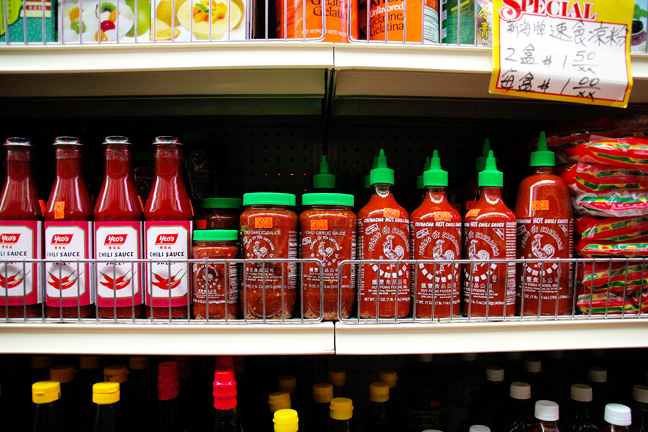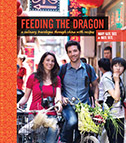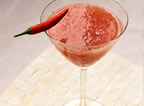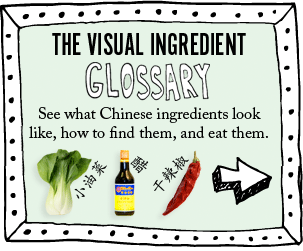Monday
Jul062009
is msg bad for you?
I like to think of myself as healthy, I try to eat smart and do a little exercise then and again (I go through spurts), but I've got nothing on my friend Kelly. She does pilates and yoga and eats things like quinoa every meal.
Kelly and I were walking down the street the other day looking for a place to eat dinner when I pointed out a promising-looking/smelling dim sum restaurant. "Oh no," she said. "I don't eat Chinese food ever, what with all the MSG."
I told her a lot of Chinese food is actually healthy and that we could order bok choy and tofu and steamed fish, but she wasn't having it. "There's MSG in there," she said. I asked Kelly if she actually knew what MSG is and she admitted to knowing little about it other than it has a scary name--MONOSODIUM GLUTAMATE. Then Kelly asked me how much I know about MSG. "That it tastes good?" I answered. And with that we settled on San Loco, a Mexican hole in the wall three blocks away.
I have since learned just about all the symptoms of MSG Syndrome, or Chinese Restaurant Syndrome as it is nicknamed in the US: headaches, diarrhea, heart palpitations, facial swelling, nausea, and vomiting (among others). I've also learned that studies have repeatedly shown that none of these "symptoms" are caused by normal consumption of MSG and that it is not only found in Chinese food, but in many American processed foods: bags of chips like Doritos, barbeque sauce, parmesan products, canned soups, seasonings, salad dressings, and fast food (KFC, Burger King, etc.).
Monosodium glutamate (MSG) is a flavor enhancer that stimulates the glutamate receptors on our tongue, giving us a savory flavor much like that of a ripe cheese or cooked meat. People in the food world are starting to refer to this savory taste as the sixth taste, "umami," (Japanase word for "delicious") in addition to the previously identified five tastes of sweet, sour, salty, and bitter.
From what I've been reading, many cooks of various disciplines swear by MSG. I rarely use it in my cooking, but I don't mind if it's added to dishes I eat at Chinese food restaurants. It's approved by the FDA. However, if people still don't want MSG in their diet, they should know that it's not just a Chinese restaurant thing. MSG originally came from Japan and it is mixed in a lot of common foods in American cabinets. I looked at the ingredients in the potato chips I had for lunch have MSG.
Categories:  health,
health,  ingredient stalker
ingredient stalker
 health,
health,  ingredient stalker
ingredient stalker Monday
Jul062009
chinese truism of the day
挂羊头卖狗肉
(gùa yáng tóu mài gǒu ròu)
To display a lamb's head while actually selling dogmeat;
to use misleading words
Categories:  chinese truisms
chinese truisms
 chinese truisms
chinese truisms Saturday
Jul042009
chili oil gives a kick

I like my food HOT. And by hot I mean mouth-tingling, forehead-sweating, SPICY. I first started reaching for the hot sauce when I lived in Waco, Texas and ate Tex-Mex every other night but I didn't get serious about my sauce until I lived in China. The two most common condiments on tabletops in China are hot sauce and vinegar. They are about as common as salt and pepper on tabletops here. Sometimes it's chili paste but normally it's a little bowl of chili oil with a small spoon for spooning small amounts of the fiery stuff on your food .
If you go to your grocery store's Asian food isle you're likely to see ten or more types of hot sauces. A popular brand is Huy Fong's Sriracha Chili Sauce which some people call Rooster sauce because it has a big rooster on the label and a bright green cap. It's thick and garlicky and not too spicy and great on eggs and noodles and... pizza. It's also made in California and we've never seen it in China.
We normally use chili oil when we want to add a spicy kick to a Chinese dish (which happens pretty often.) The oil doesn't have a lot of flavor but it enhances the natural flavors of a dish and makes your tongue heat up just the right amount. You can buy chili oil from the store in a jar or a bottle or make it yourself. We like to make a big batch at home and keep in handy (it keeps for 2 months in a cool cupboard.) Add a spoonful or two to a vegetable stir-fry or add a drop to a bowl of noodles and you won't be sorry. Here's our easy recipe for chili oil:
Chili Oil
1/3 cup Sesame Oil
2/3 cup Peanut Oil
2 tablespoons Dried Chili Flakes
Heat the sesame oil and peanut oil in a wok over medium heat until a few chili flakes sizzle when added to the oil but don't turn black. Add the chili flakes and then immediately remove the wok from the heat. Cover the wok and let it sit over night or until cool. You can strain out the chili flakes with cheesecloth or leave them in. We normally just leave them and let them rest at the bottom of the jar. Store the chili oil in a glass jar with a tight lid in a cool cupboard.
-Nate
Categories:  basic techniques,
basic techniques,  recipes,
recipes,  sauces
sauces
 basic techniques,
basic techniques,  recipes,
recipes,  sauces
sauces Friday
Jul032009
lifelong penpals for two years
When I left Nanjing University in 2004, my friend Sue and I vowed to become lifelong penpals across the oceans divide. This lasted for a surprisingly long time, two years I think. She would write in English and I in Mandarin. I'm embarrassed to say, and I won't ever tell Sue, that sometimes it would take me 2-3 hours to write what might look to anyone else like the simplest of emails informing her of my classes back in Texas, or about my latest adventure moving to New York. I worked harder and learned more vocabulary trying to craft the perfect email to her than I ever did writing a paper for Chinese class.
One day Sue wrote me an urgent email. She was worried about the floods going on in Texas at the time. "Mary Kate," her email began, "I have heard about the floods where you live. If you are safe and still alive, please respond."
I didn't respond. I was always going to, but I wanted to write her back in perfect, flawless Mandarin and I never got around to it. I was going to have to look up new vocab words associated with floods and torrential rains. For the past three years, Sue has probably wondered, or assumed, my untimely death. However, yesterday I wrote Sue back.
I'm hoping Sue and I can pick up where we left off as lifelong penpals. My Mandarin writing skills have atrophied without use, as I'm sure anyone who has studied a foreign language can relate. This is why I am going to start learning to write a new Chinese character (or phrase, or proverb) a day. I'll share my findings here with you each day.
植树的最佳时间是20年前,现在还为时不晚.
(zhíshù de zuìjiā shíjiān shì èrshí nián qián, xiànzài hái wéishí bù wǎn.)
The best time to plant a tree was 20 years ago. The second best time is now.
Categories:  chinese language
chinese language
 chinese language
chinese language 







